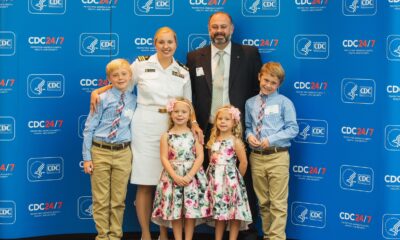Community
Local State Reps Give Roundup of Legislative Session
Published
12 months agoon
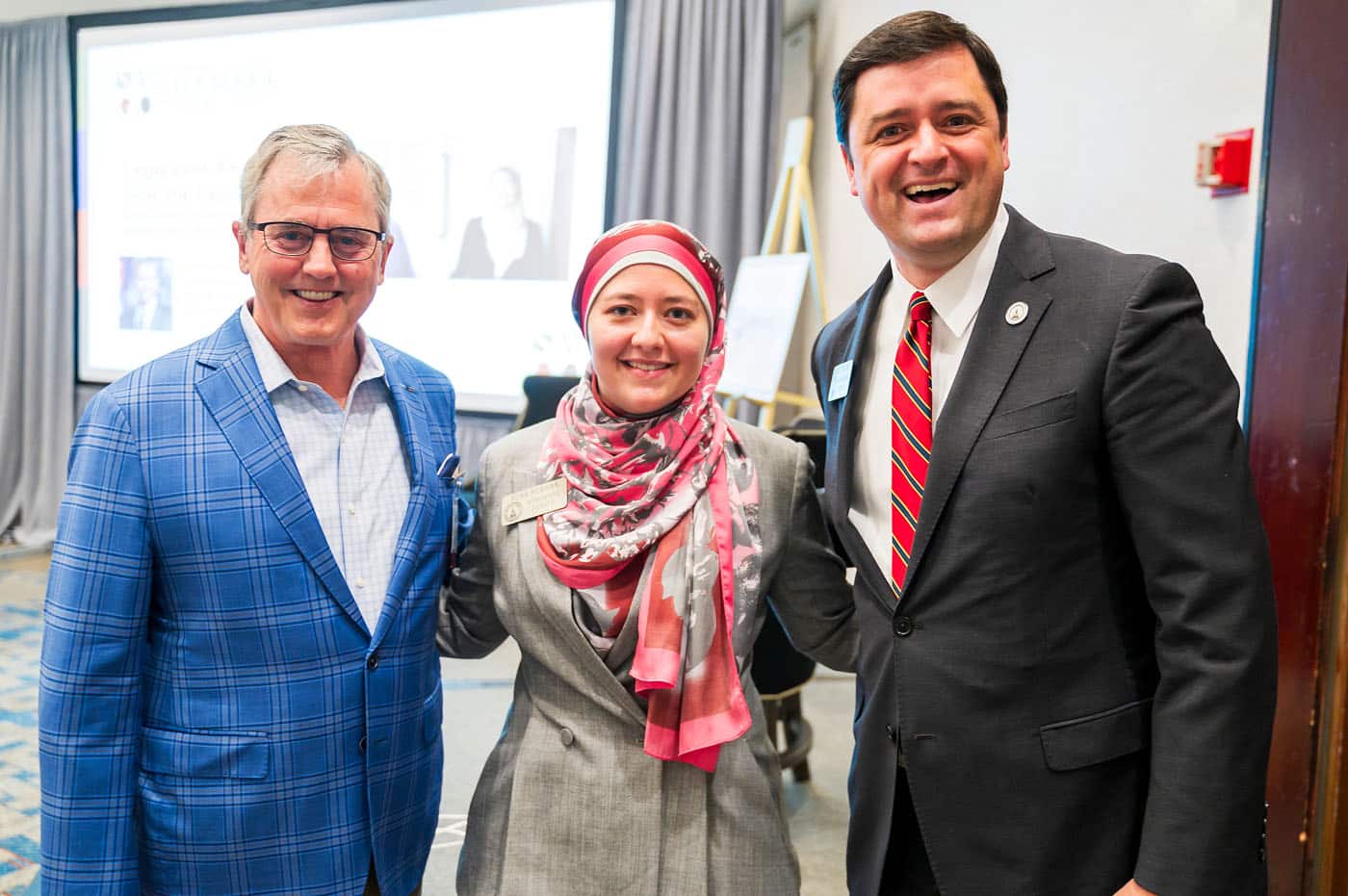
Hilton, Romman trade friendly banter that reflects diverse views in Georgia government
Georgia State House District 97 Representative Ruwa Romman and District 48 Representative Scott Hilton, whose constituents include parts of Southwest Gwinnett County, including Peachtree Corners, sat down for a second time to share information about legislative action at the State Capital.
Their discussion was part of the Southwest Gwinnett Chamber of Commerce First Friday Breakfast series at Atlanta Hilton Northeast.
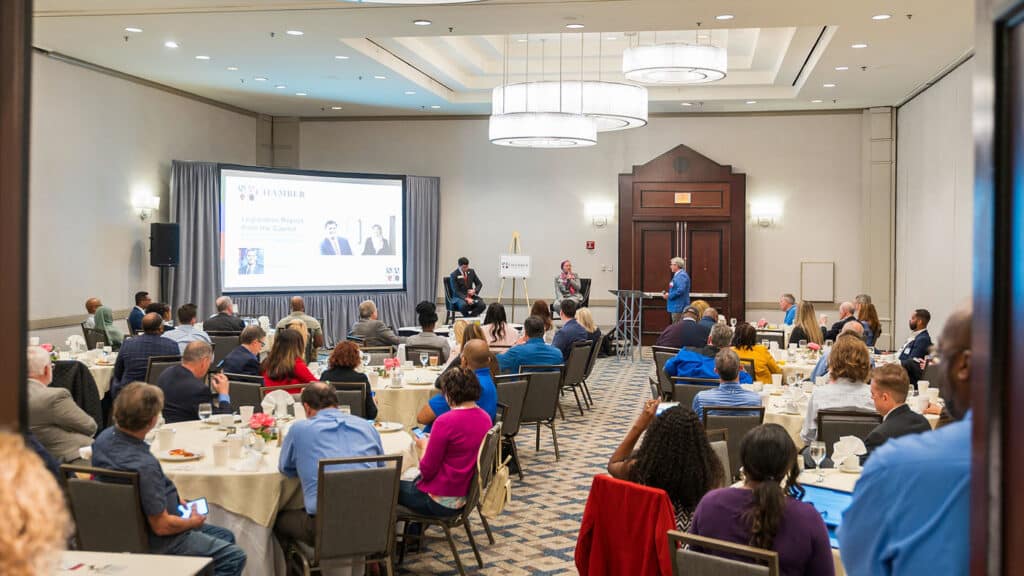
Although they sit on opposite sides of the aisle, Hilton and Romman both seek to sponsor and pass legislation that improves and maintains a high quality of life in the Peach State and provides its residents with what they need.
Elected in 2022, this was Romman’s sophomore year in the State House. She serves on the Georgia House Energy, Utilities and Telecommunications Committee, Georgia House Information and Audits Committee and Georgia House Interstate Cooperation Committee.
Hilton previously served in the State House from 2017 to 2019 but took a “sabbatical,” as he calls it, to serve as executive director for the Georgians First Commission under the Office of Governor Brian Kemp.
He was re-elected to his current position in 2022. He is the vice chair of the Georgia House Creative Arts and Entertainment Committee and the Georgia House Education Committee, as well as a member of the Georgia House Public Health Committee and the Committee on Georgia House Urban Affairs.
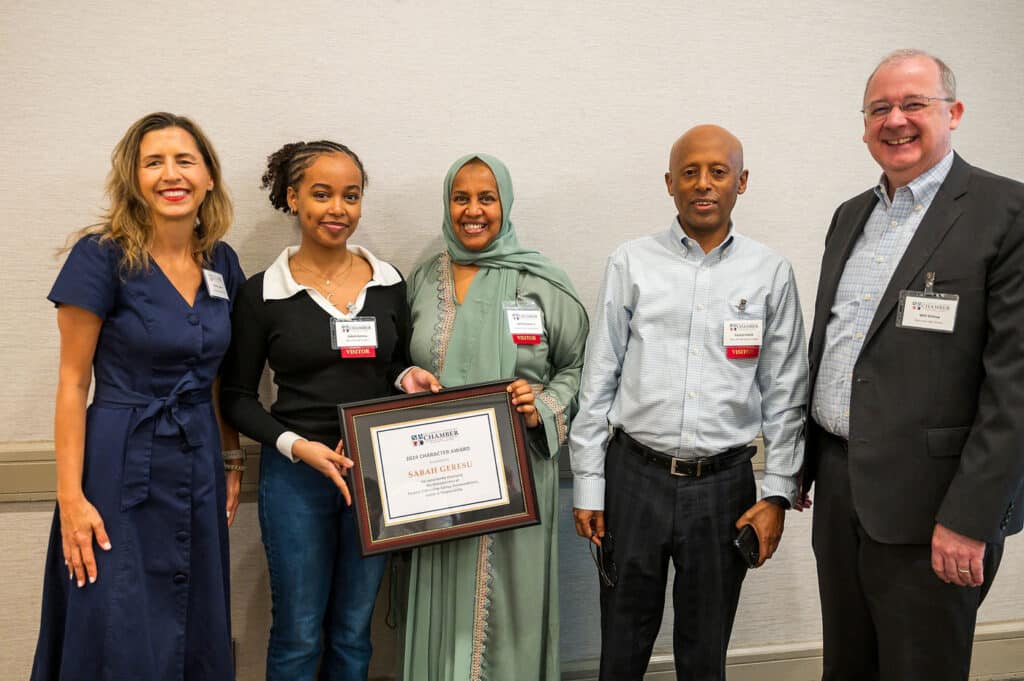
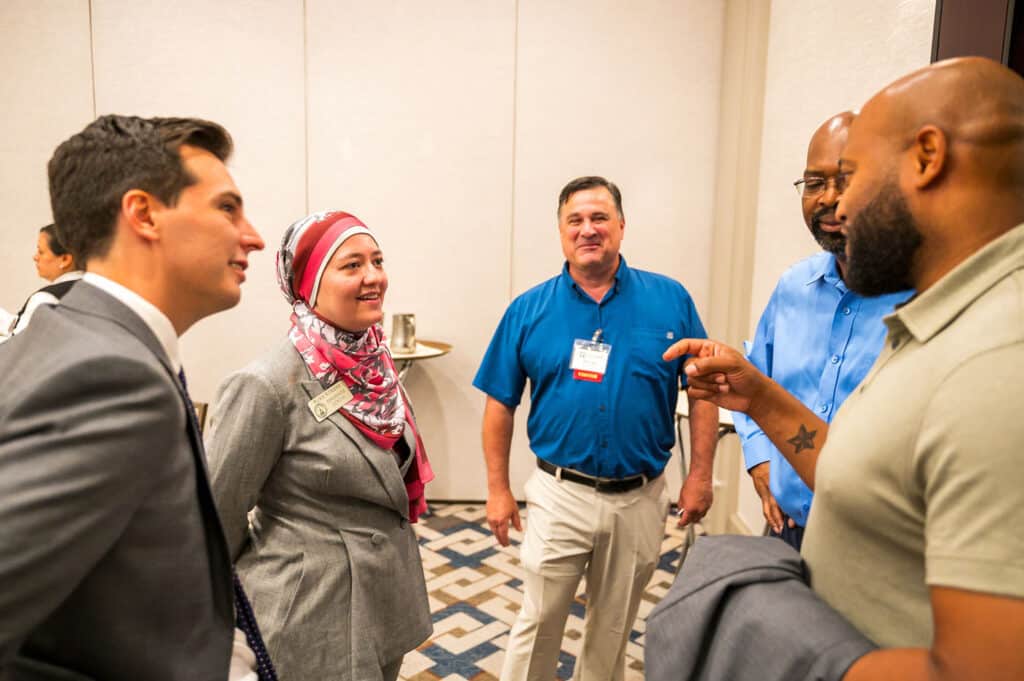
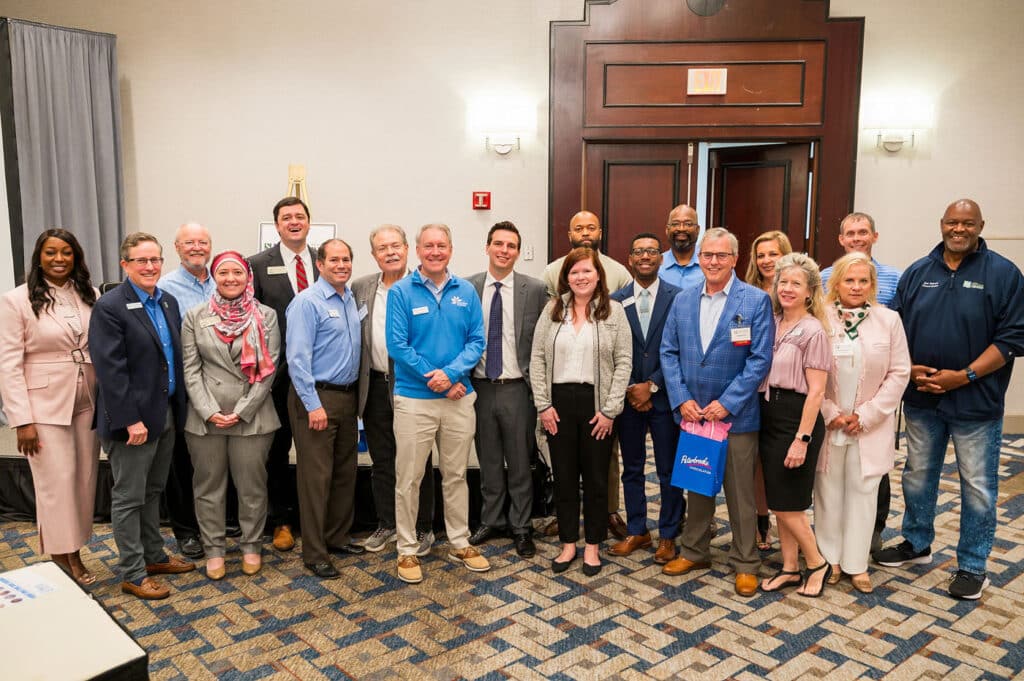
Senate Bill 63
The moderator, Norcross resident and former WAGA political reporter Dale Russell started off with a topic making headlines: Senate Bill 63. This law, signed by Gov. Kemp shortly after the session ended, prohibits charities, individuals or groups from providing bail funds for more than three people per year unless they register as bonding agencies. It also expands mandatory cash bail to 30 new offenses.
“I think it’s going to bring home safety to the community,” said Hilton. “I ran on that issue because as I was knocking on doors, I’ve heard from folks who [want to] keep our community safe. And unfortunately, no community has been immune from the uptick in crime that we had seen post-COVID, so this was one of those bills in response to that.”
Hilton gave examples of crimes where individuals out on bail committed acts such as murder.
“That was our commitment back to our constituents to say, ‘Listen, we’re not going to let bad guys back out onto the streets again to do more crime.’ This bill was in response to this; it’s going to keep our community safe, hold those accountable and bring justice to those who break the law,” Hilton remarked.
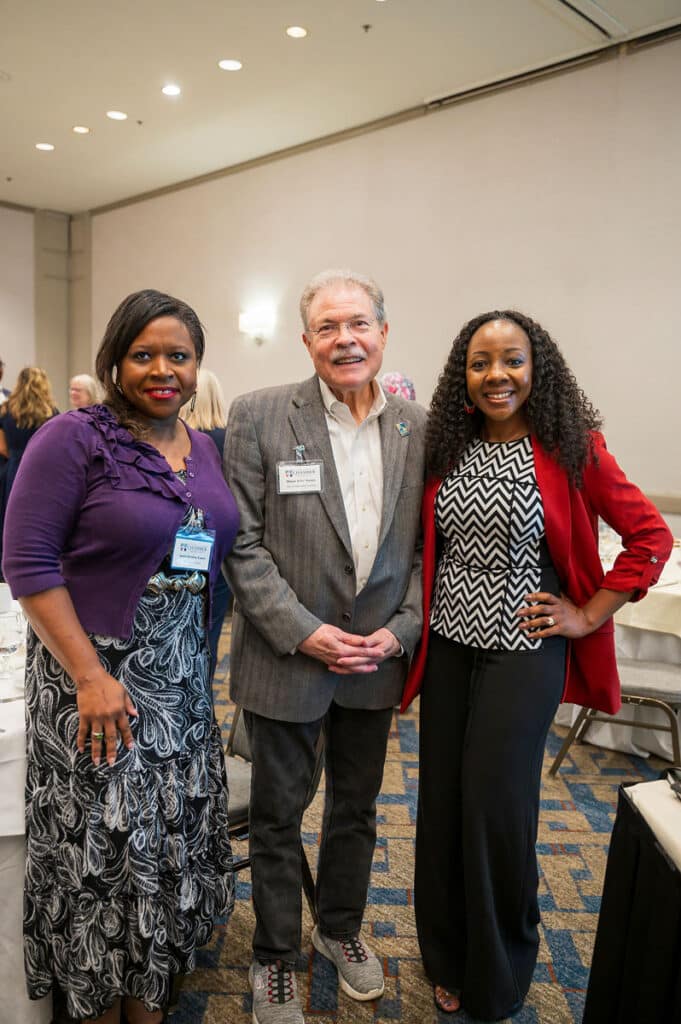
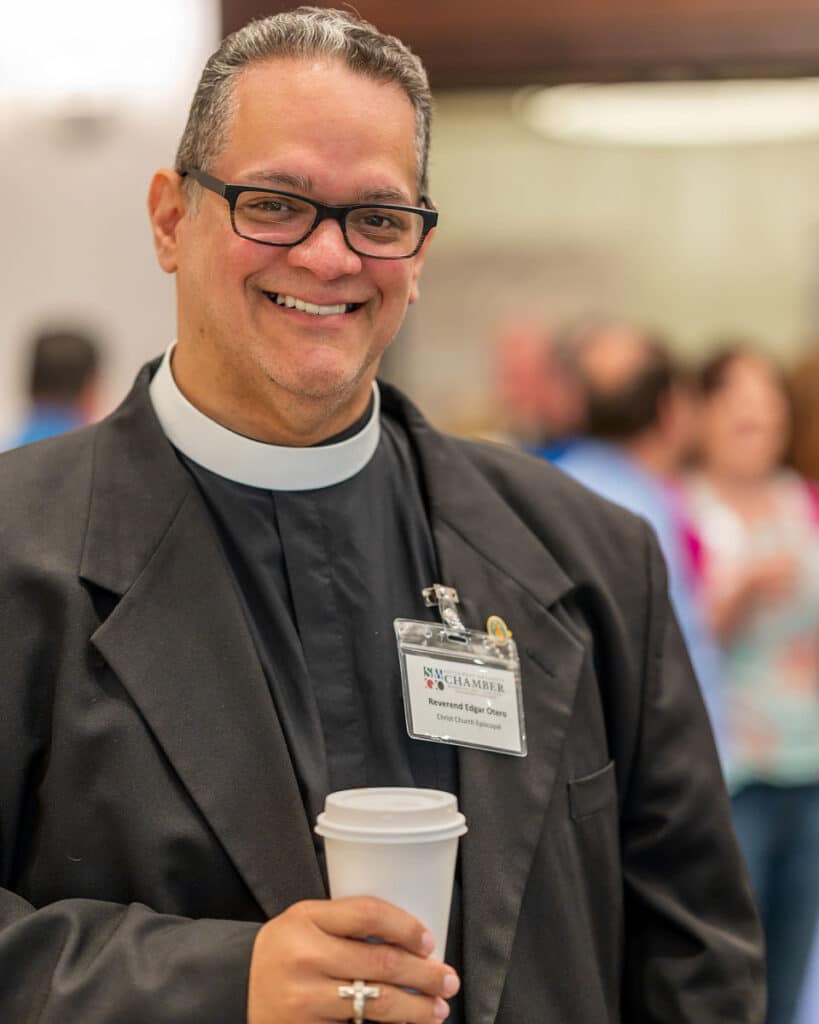
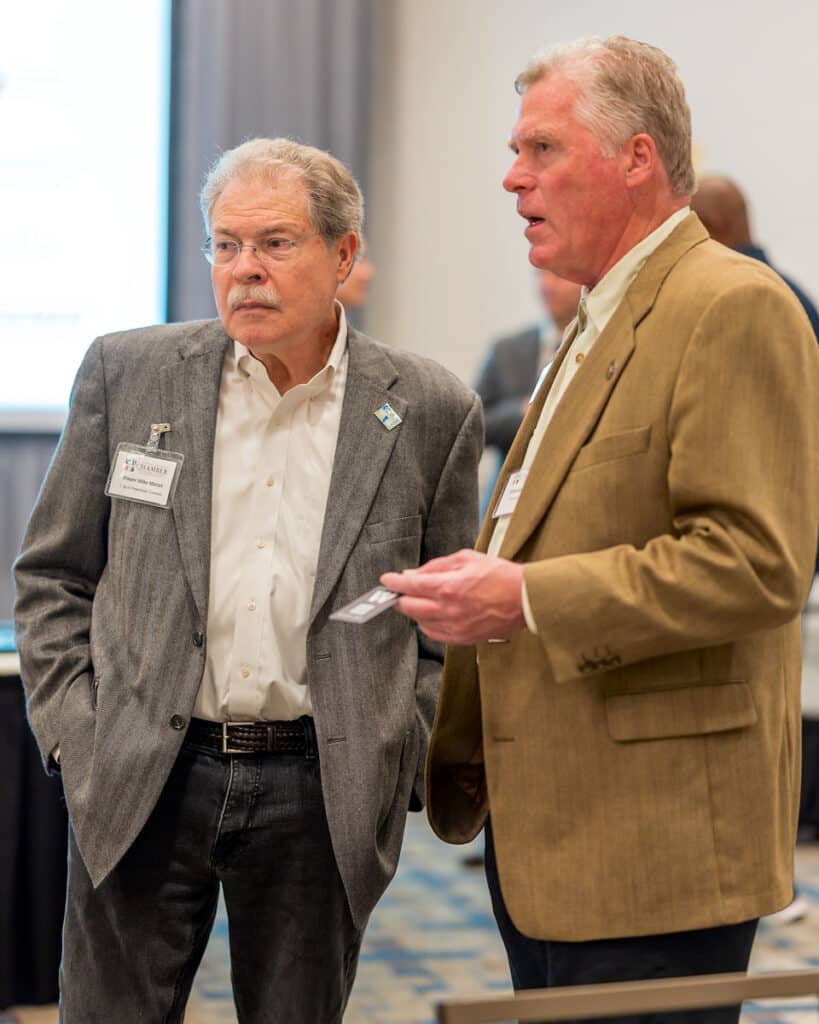
“Unfortunately, right now, we’ve got district attorneys and sheriffs across Georgia who are blatantly disregarding the law and letting folks back out on the streets who pose, you know, safety risks to law-abiding citizens like you and I and your businesses,” he continued.
Russel pointed out that there’s been a lot of criticism of this law.
“The ACLU was totally against it. Some felt like it was imprisoning poor people in the sense, for minor crimes,” he said.
“I do agree with the criticism for a few reasons,” said Romman.
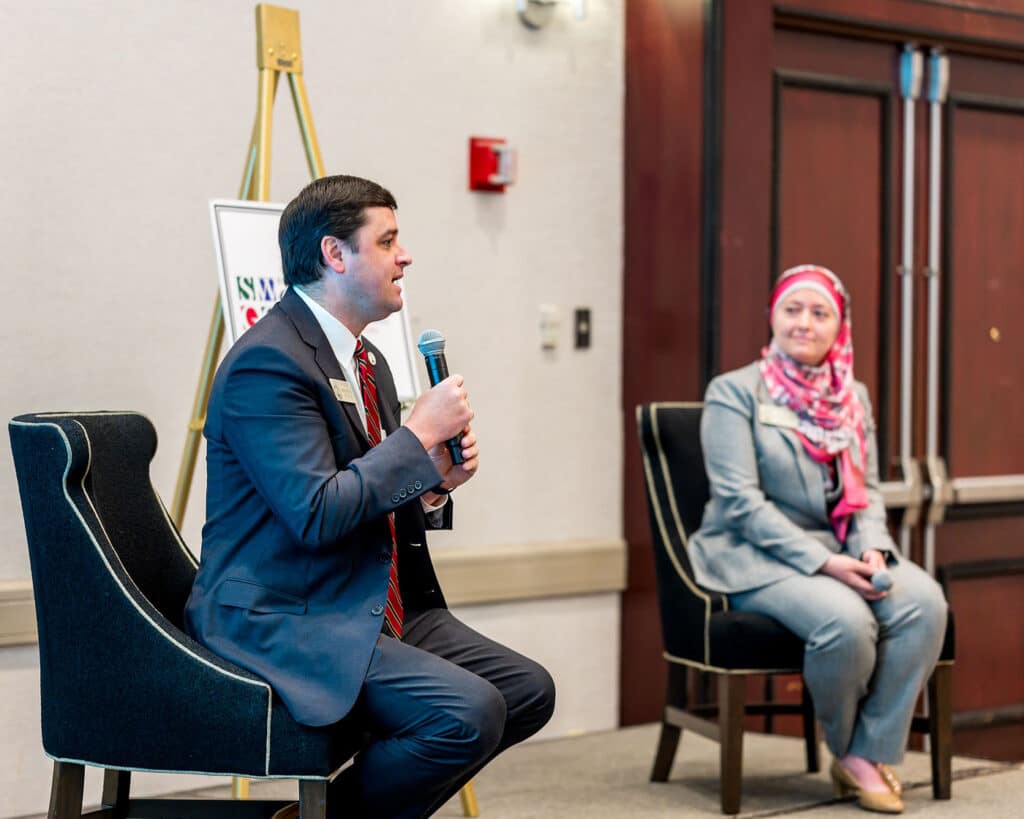
“The problem with this bill is that of the 30 crimes that are listed as now requiring a cash bail, the majority of them don’t actually require jail time, even if you’re found guilty of them. So now, somebody who would not even have ever served time for those crimes that are listed could now serve jail time because they cannot afford their bail,” she explained.
She added that the law doesn’t address the crimes it’s supposed to protect citizens from.
“We see these headlines, but this bill doesn’t address those because what we see happening is that a lot of churches now will no longer be able to bail people out that cannot afford their bail because of this bill,” she said.
“And churches that have been trying to, for example, reunite a parent with their children for Christmas, or whatever the case may be, can no longer do that. There is actually an exception written into this bill for bail bondsmen. So, it’s not like being able to pay cash bail is completely out of the question. It just means that somebody can make money off of it now,” Romman continued.
Hilton said the state isn’t done with addressing public safety issues as they come up.
“I know that’s been a priority of the governor, and I think rightfully so; you know, there’s a reason we’ve got citizens flocking to Georgia over the last ten years; we’ve added a million Georgians to our state, and they are leaving states with policies that don’t have this. They’re coming to Georgia for economic prosperity, for safety and for good schools,” said Hilton.
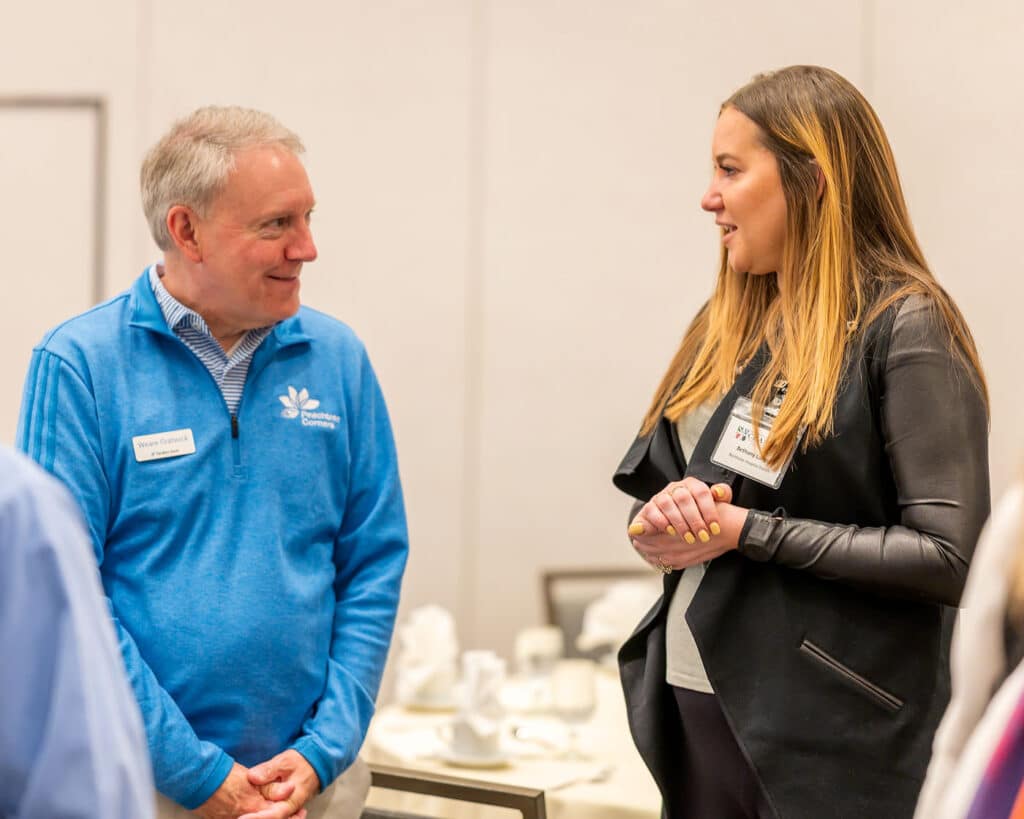
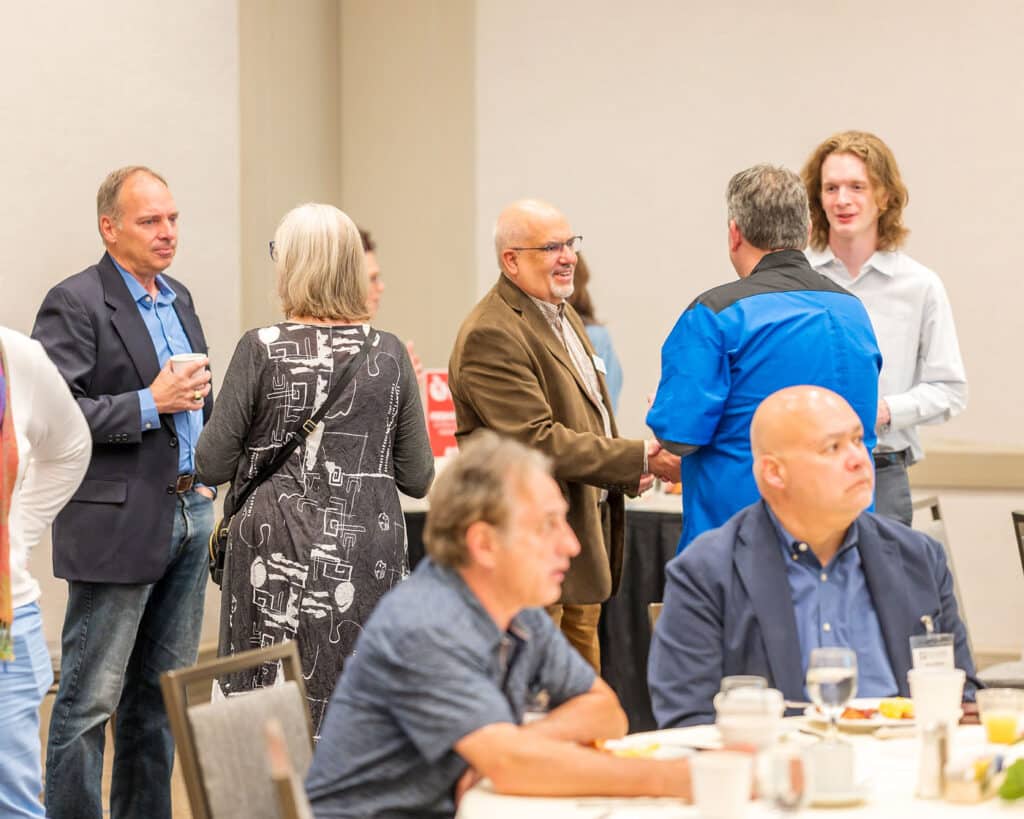
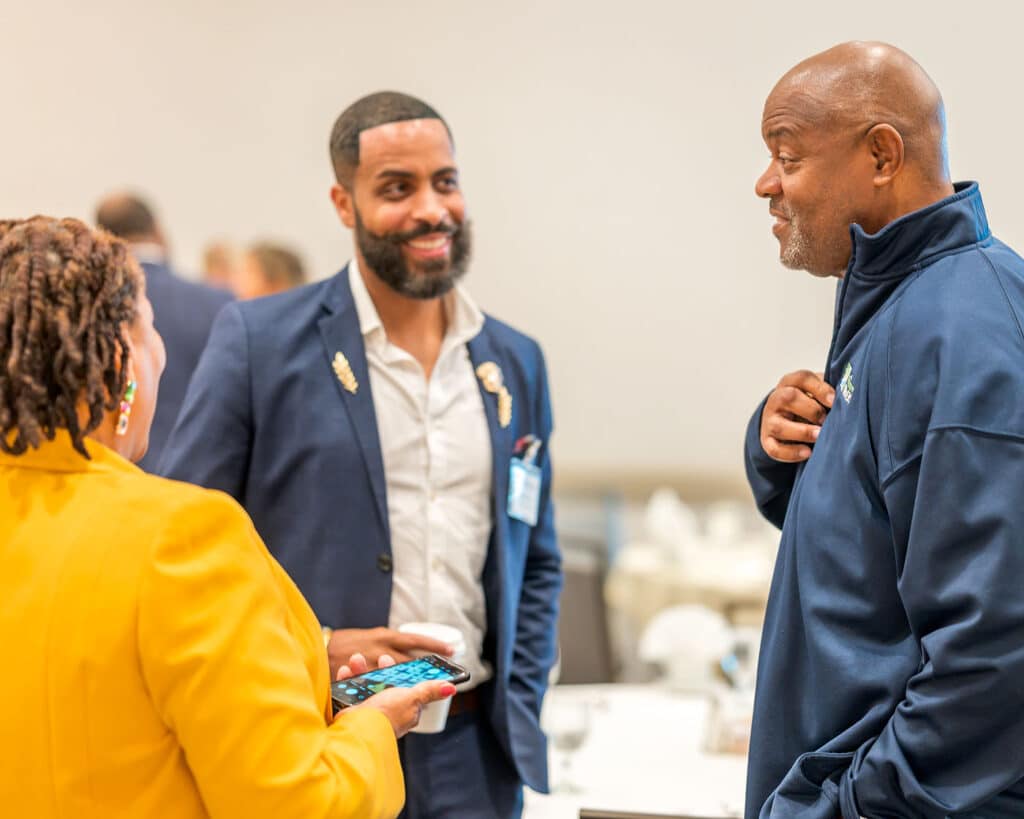
House Bill 1105
Another controversial bill, HB 1105, is framed as a public safety bill that requires local enforcement to coordinate with federal immigration officials when someone in custody is suspected of being in the country illegally.
Some say it’s an immigration bill.
“I know that the federal administration is trying to tell us there’s not a crisis. But there is a humanitarian crisis going on right now on our southern border. … But they’re not handling it the right way, and it’s starting to impact our communities,” said Hilton.
“We’ve got sheriffs who have folks in their custody, who [need] to be reported up to ICE. And essentially, they’re sort of ignoring what’s in the law right now that says you got to report these folks,” he explained.
Romman doesn’t see it that way.
“Again, when you read the contents of the bill, that is, unfortunately, not what it does,” she said. “I’m one of the few, if not the only, member of the legislature that’s done any border project work,” she remarked.
She talked about her work keeping unaccompanied immigrant minors safe.
“I want to remind people that when we talk about immigration, there’s an entire spectrum of people that we are talking about. And it’s not just at the border, it’s also people that fly into our country legally, that gets narrowed into a terrible immigration system,” Romman said.
“It forces our state and county and city police to do federal-level work without more funding. What we’re doing is we’re actually adding an increased burden, essentially onto their workload that we are not paying for. And in addition, within this bill, if they do not do this, they could lose more funding.”
She added that this will take the police away from focusing on local issues and trying to work with people who live in their communities.
“If a community member feels like if they reach out to police for help, and the police are going to deport them, they are less likely to report crimes and less likely to work with our local police department,” Romman said. “If we’re serious about immigration and its relationship to crime, immigrants are 30% less likely to commit crimes, and I don’t want to vilify an entire group of people.”
Romman said she supports a holistic, three-pronged approach that includes improving conditions on the border and pathways to citizenship.
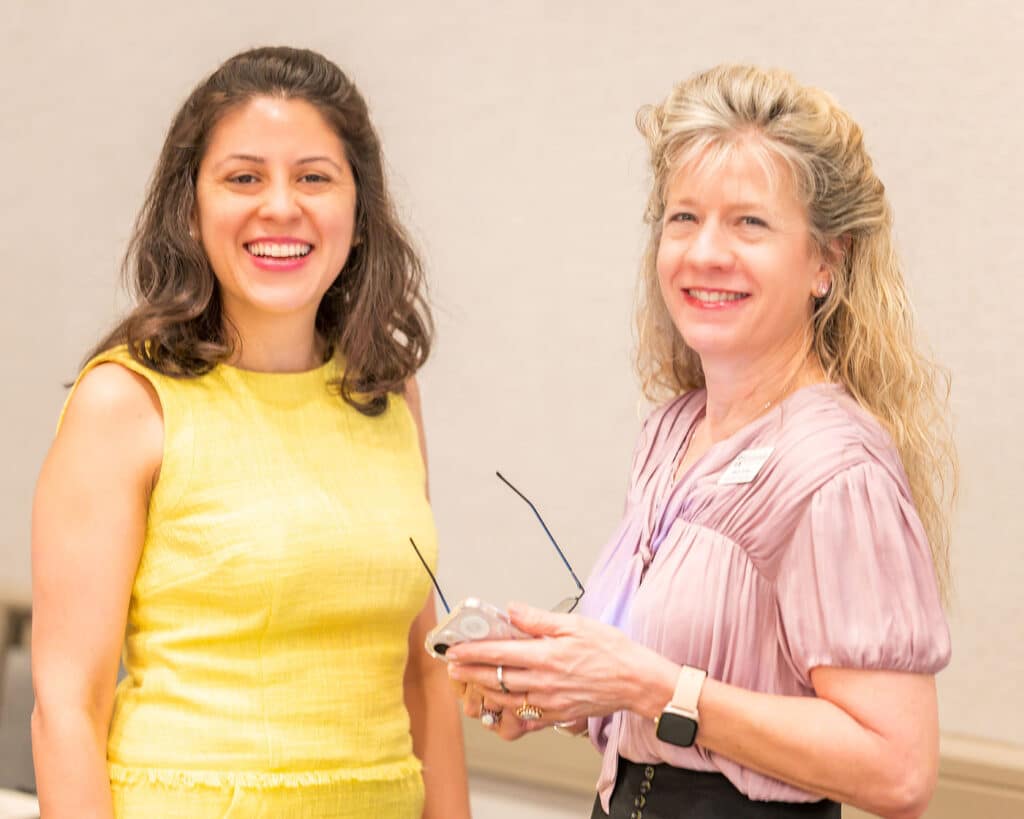
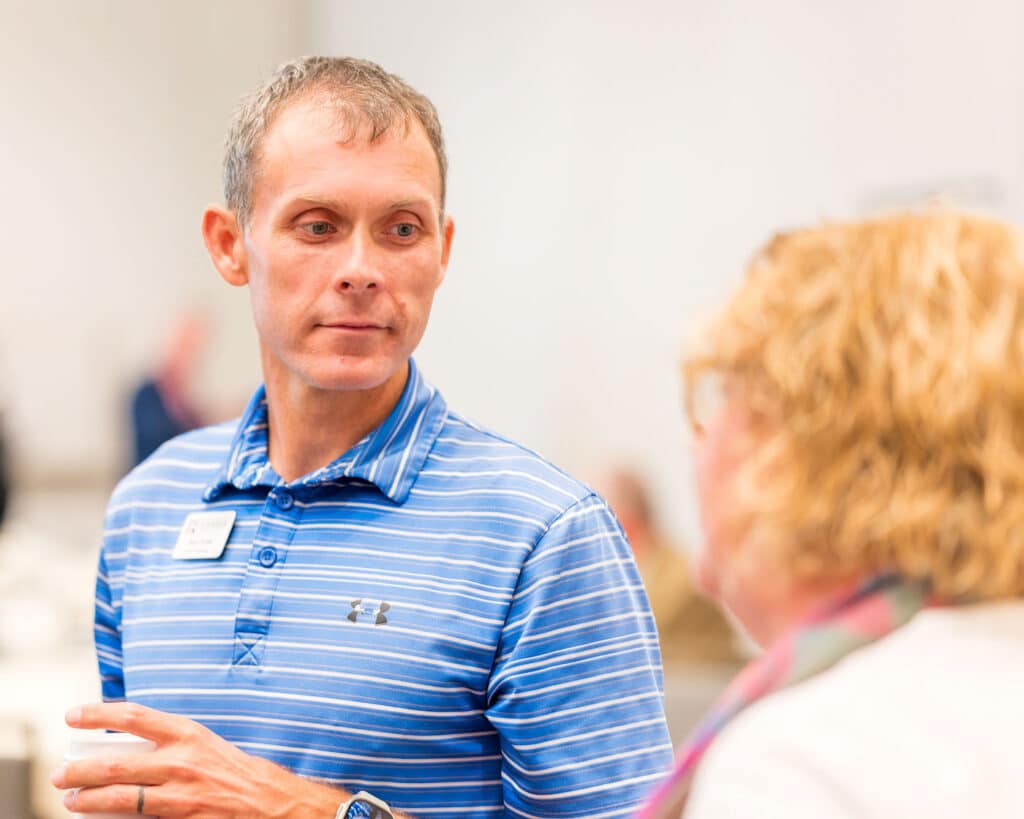
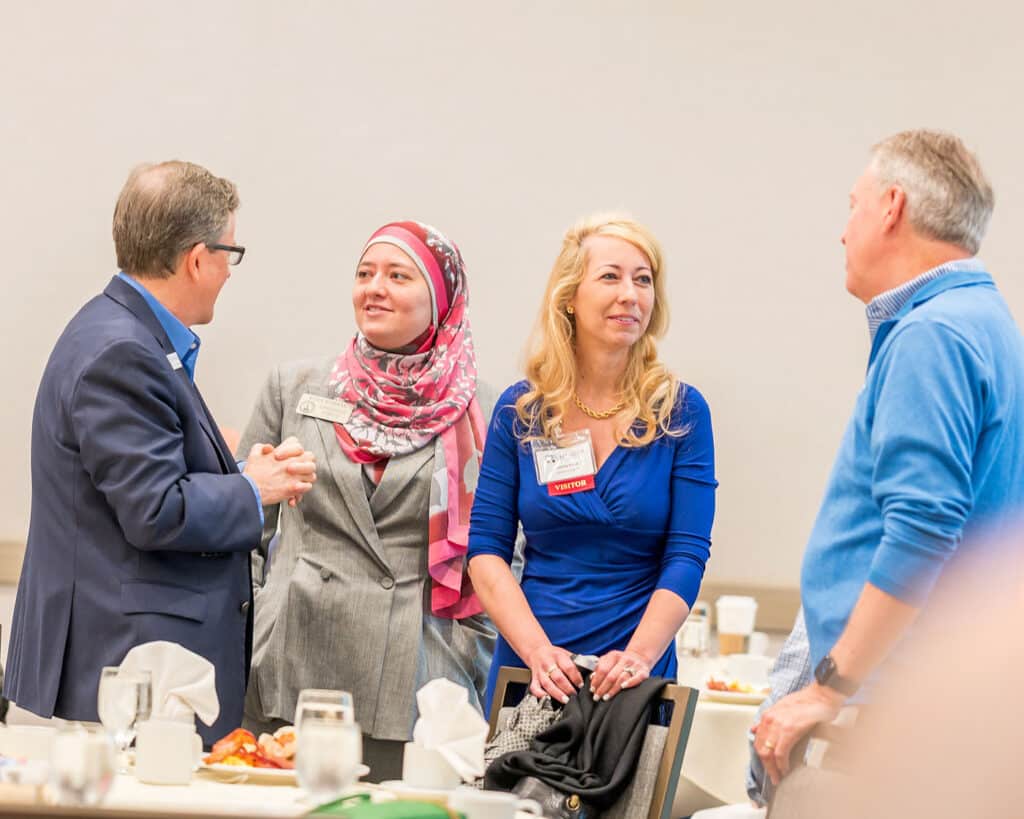
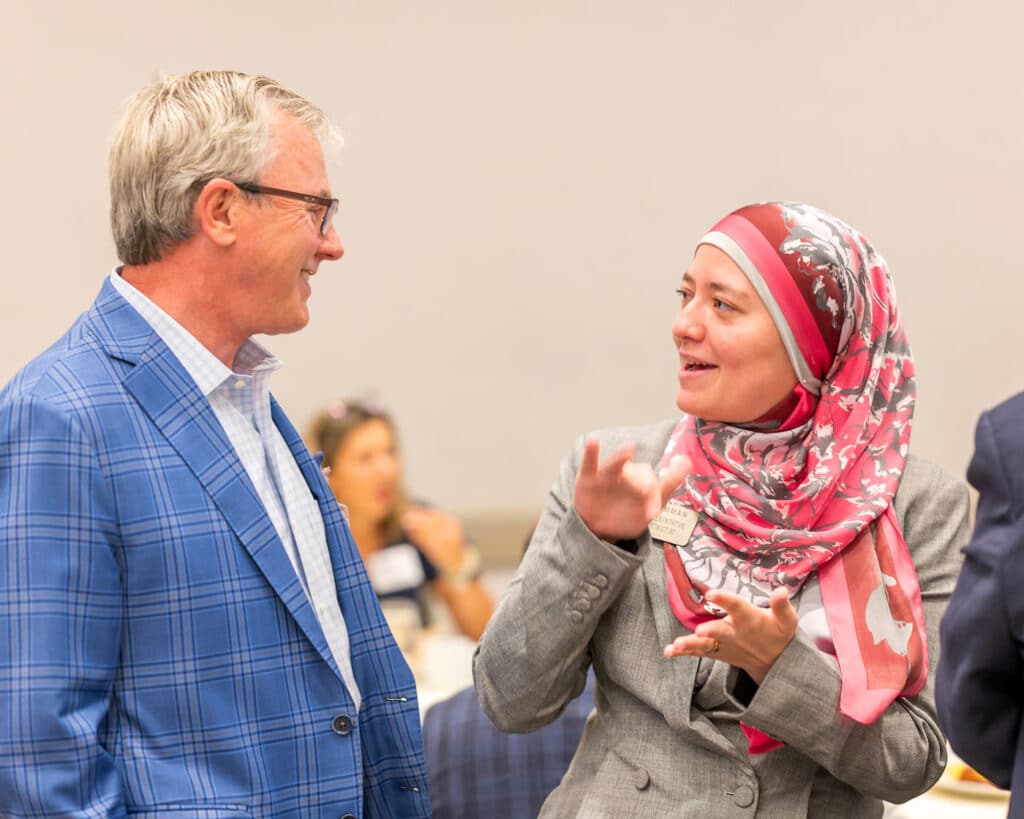
Business-related legislation
When the smoke cleared, both Hilton and Romman joked that they had different opinions about many issues but agreed that’s a healthy part of how the government works.
“The fact that we do disagree and the fact that you, the community, have varying choices and options out there. I think it’s a healthy part of the process,” said Hilton. “And we do have fun. I was telling somebody we play kickball about halfway through the session, and we do get along.”
The discussion moved on to topics such as the FTC ruling on non-compete clauses and tort reform, which just about everyone in the room agreed upon. Although employees could see the beauty of disallowing non-compete clauses, as business owners, they’d hate to see trade secrets put in jeopardy or valuable time and money put into training to benefit another company.
And everyone wanted to see caps on personal injury claims for things like slip-and-falls and fleet vehicle accidents.
“One of the few regrets I have coming out of session is that we didn’t do more on tort reform,” said Hilton. “Right now, Georgia is the number one judicial hellhole in the nation, meaning that we have more lawsuits on businesses and payouts than anywhere else in the country.”
This was one area where both representatives had similar views.
“I don’t think this is a left or right issue,” said Romman. “I want to make sure that whatever tort reform we pursue does not let, for example, a bad-acting company off the hook. But on the flip side, if somebody is just going around and suing everybody all the time to try and make some money off of it, how do you protect corporations and businesses from those kinds of bad incidents litigation?”
“What I will continue to look for when it comes to tort reform is, how are we going about balancing that?” she added.
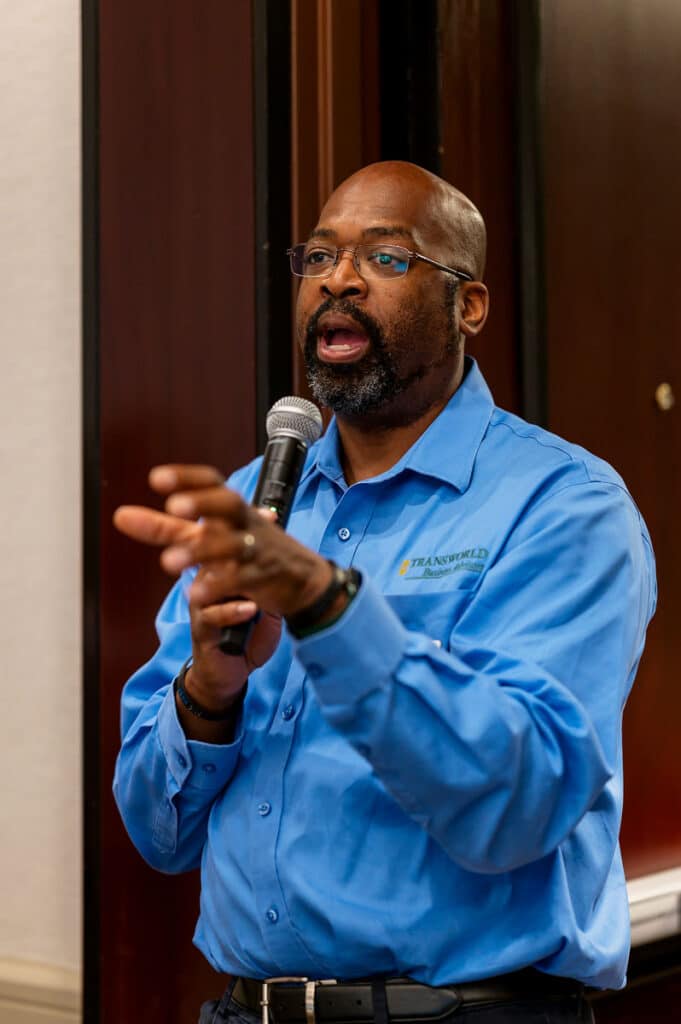
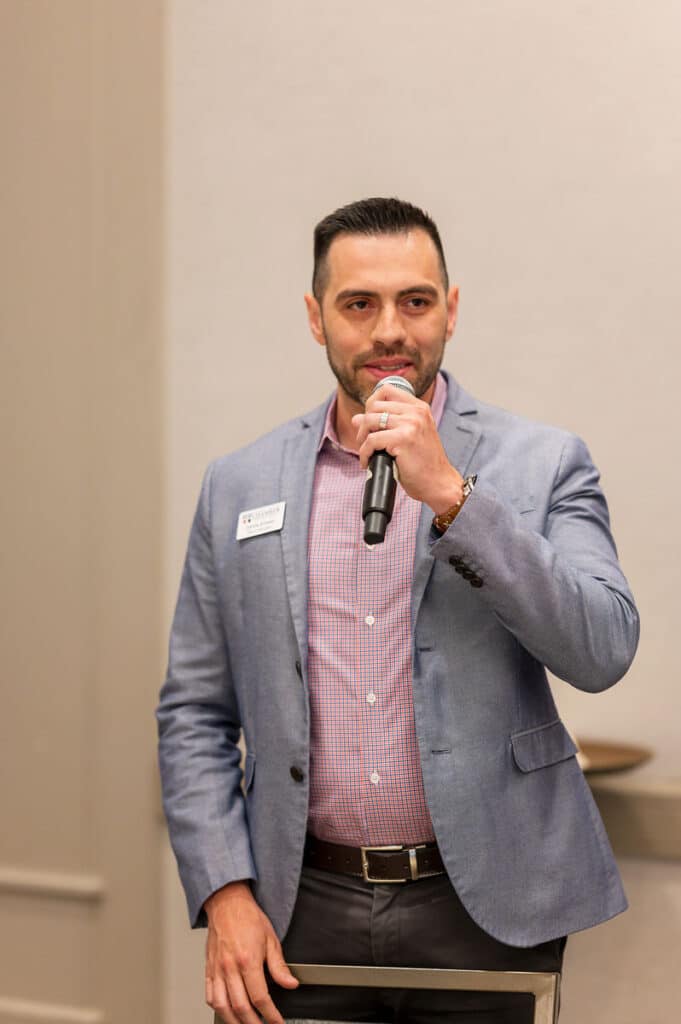
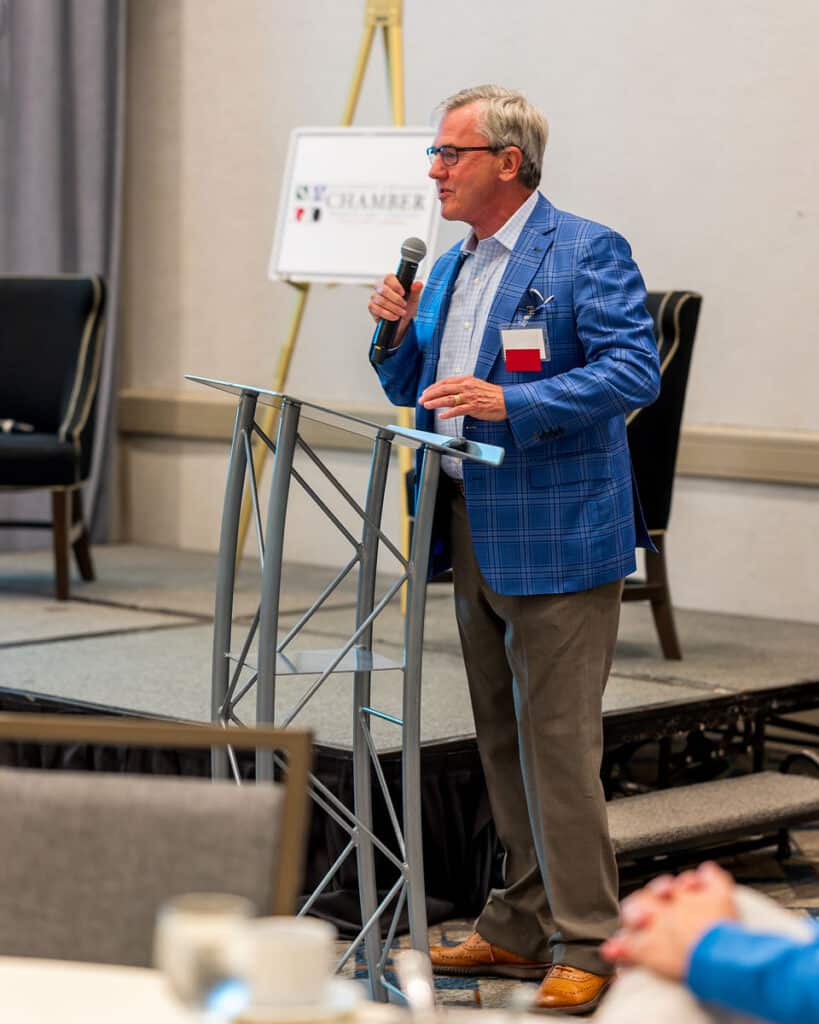
Looking ahead
As the session wrapped, Romman and Hilton pointed out legislation they’d like to see move forward next year.
“House Bill 971 creates a $300 tax credit for taxpayers who sign up for firearm safety training or purchase a safe storage device. It’s a bipartisan measure, viewed by some as a small but perhaps significant move for gun safety advocates, which was tabled in the Senate room,” said Romman.
She said the bill wouldn’t even require someone to disclose that they owned a firearm, but it was meant to incentivize people to store their firearms properly.
“There wasn’t a lot of appetite if somebody didn’t properly store their gun to have consequences for that, so we thought it would just incentivize better behavior,” she said.
Hilton mentioned school safety.
“Over the last three years, every single school in Georgia has gotten a one-time $100,000 grant for School Safety. That’s every school in Georgia; in this most recent budget, we included $45,000 in recurring money for every school in the state to do whatever they want to ensure their campuses are safe,” he said. This includes private schools as well.
At the end of the event, Hilton and Romman reminded the audience that they weren’t running against each other, and even though their views were different, their goals for a better Georgia were equally as passionate.
Related
Arlinda Smith Broady is part of the Boomerang Generation of Blacks that moved back to the South after their ancestors moved North. With approximately three decades of journalism experience (she doesn't look it), she's worked in tiny, minority-based newsrooms to major metropolitans. At every endeavor she brings professionalism, passion, pluck, and the desire to spread the news to the people.

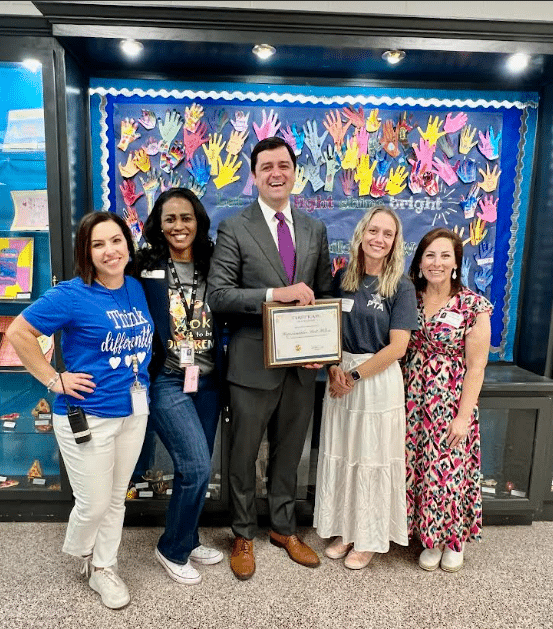
Simpson Elementary School celebrated Exceptional Children’s Week (ECW) last month with five days of special activities to recognize their special needs population and all of their exceptional students.
April 14–18 is set aside each year to celebrate children with disabilities, gifts and talents. This year’s ECW theme was Bridging Gaps and Building Futures, and the school was happy to take part.

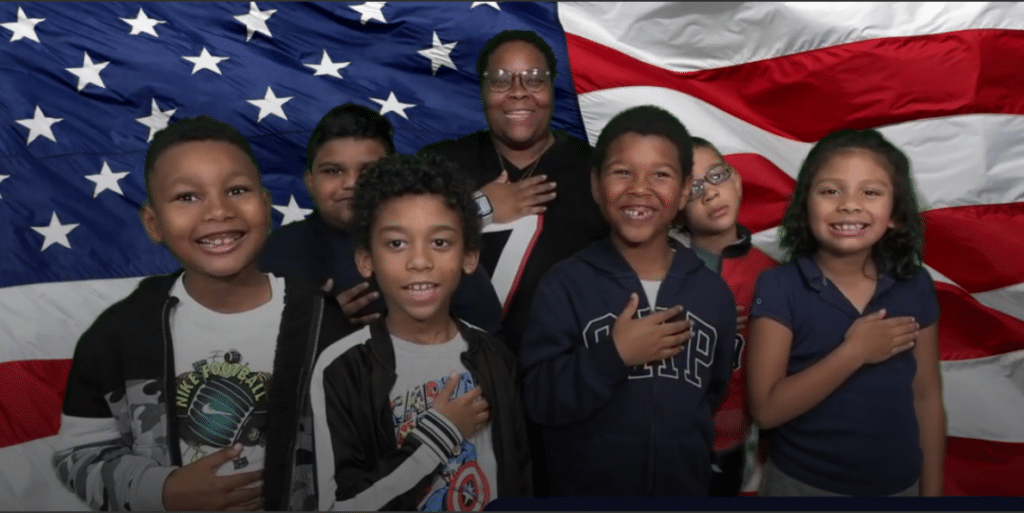
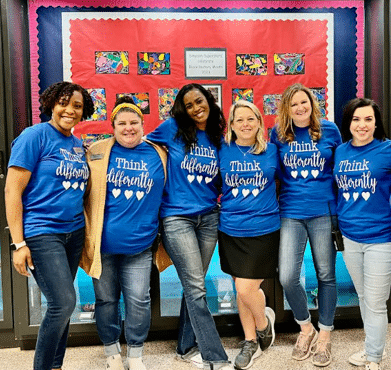
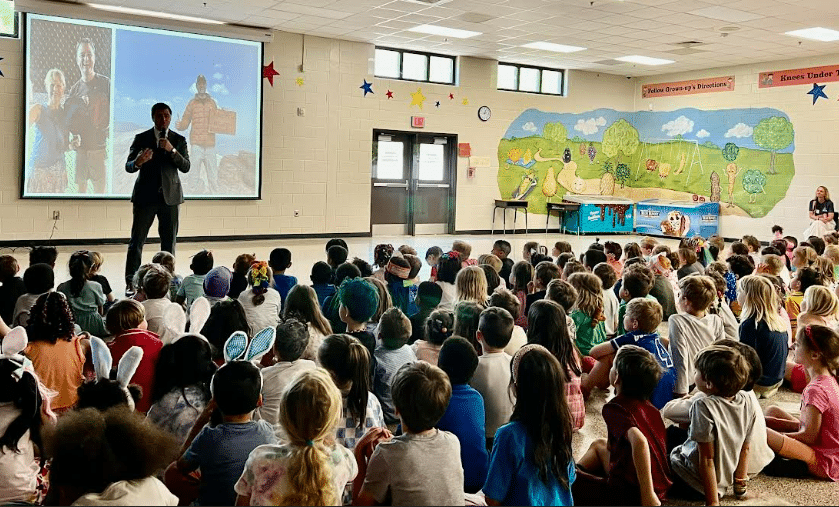
They highlighted each day of the week on the morning news with fun facts about notable people in society — and throughout history — who have overcome challenges with their disabilities, including actor Daniel Radcliffe (who has lived with dyspraxia for his entire life), Tom Cruise, Whoopi Goldberg, Frida Kahlo and Helen Keller.
Simpson Elementary’s technology team also pre-recorded various special needs classes reciting the Pledge of Allegiance every day of the week.
Guest speaker
To end their ECW with a bang, they invited former Simpson Elementary parent, State Representative Scott Hilton, to come in and speak to their K-2 classes about raising his son, Chase (who is autistic and now a student at Norcross High School), and how being different is okay.
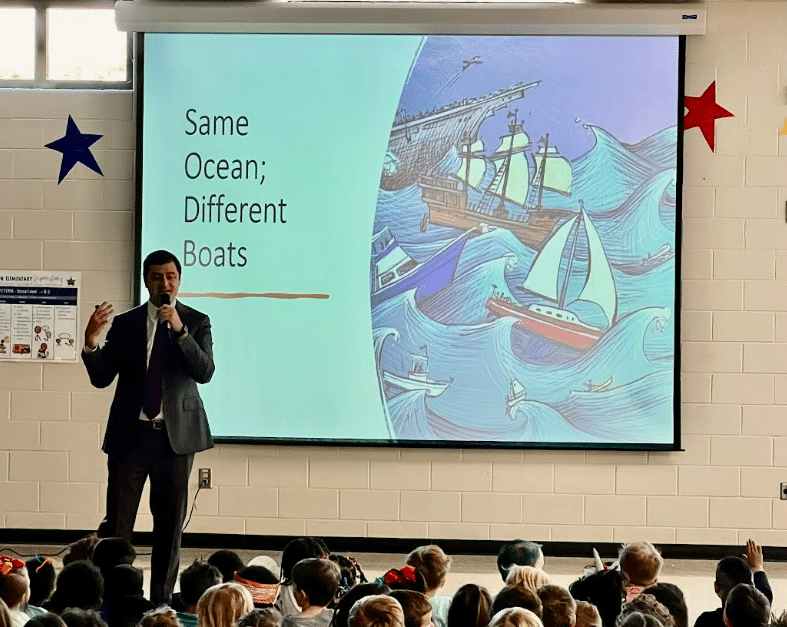
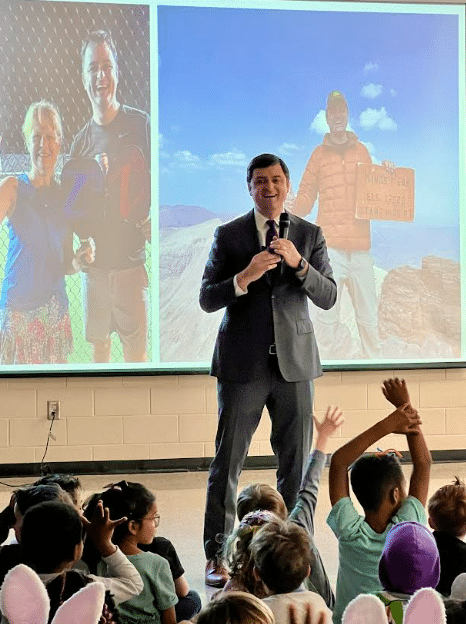
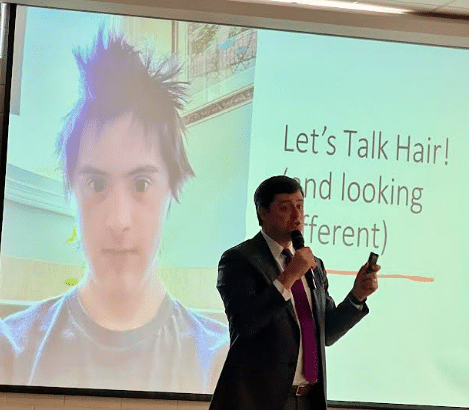
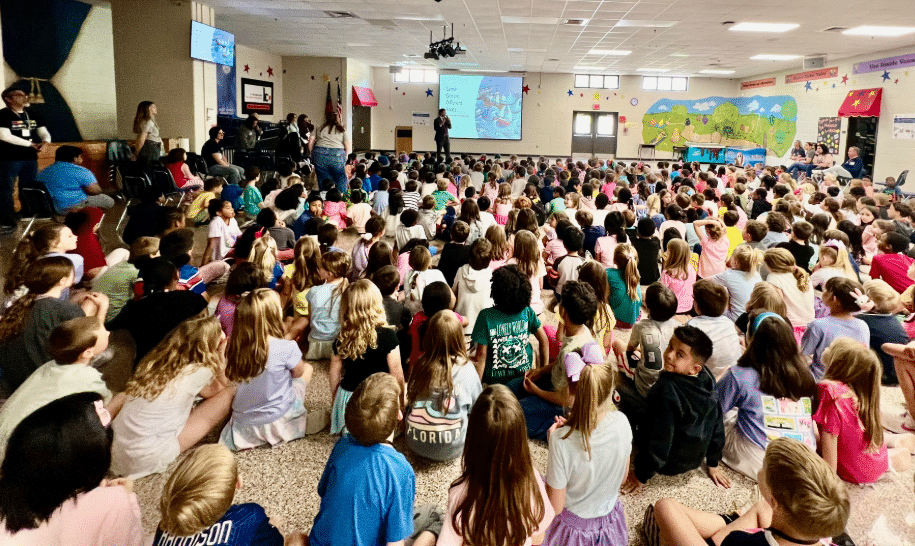
“Showing kindness and being inclusive is the best version of humanity,” said Dr. Taffeta Connery, Simpson Elementary School principal, in a statement about the event.
“Simpson Elementary has a special needs population of 214 (23%) of 946 students. [And] … we strive to ensure that our students are valued, recognized and instilled with high expectations for all.”
For more about Simpson Elementary, visit simpsones.gcpsk12.org.
Related
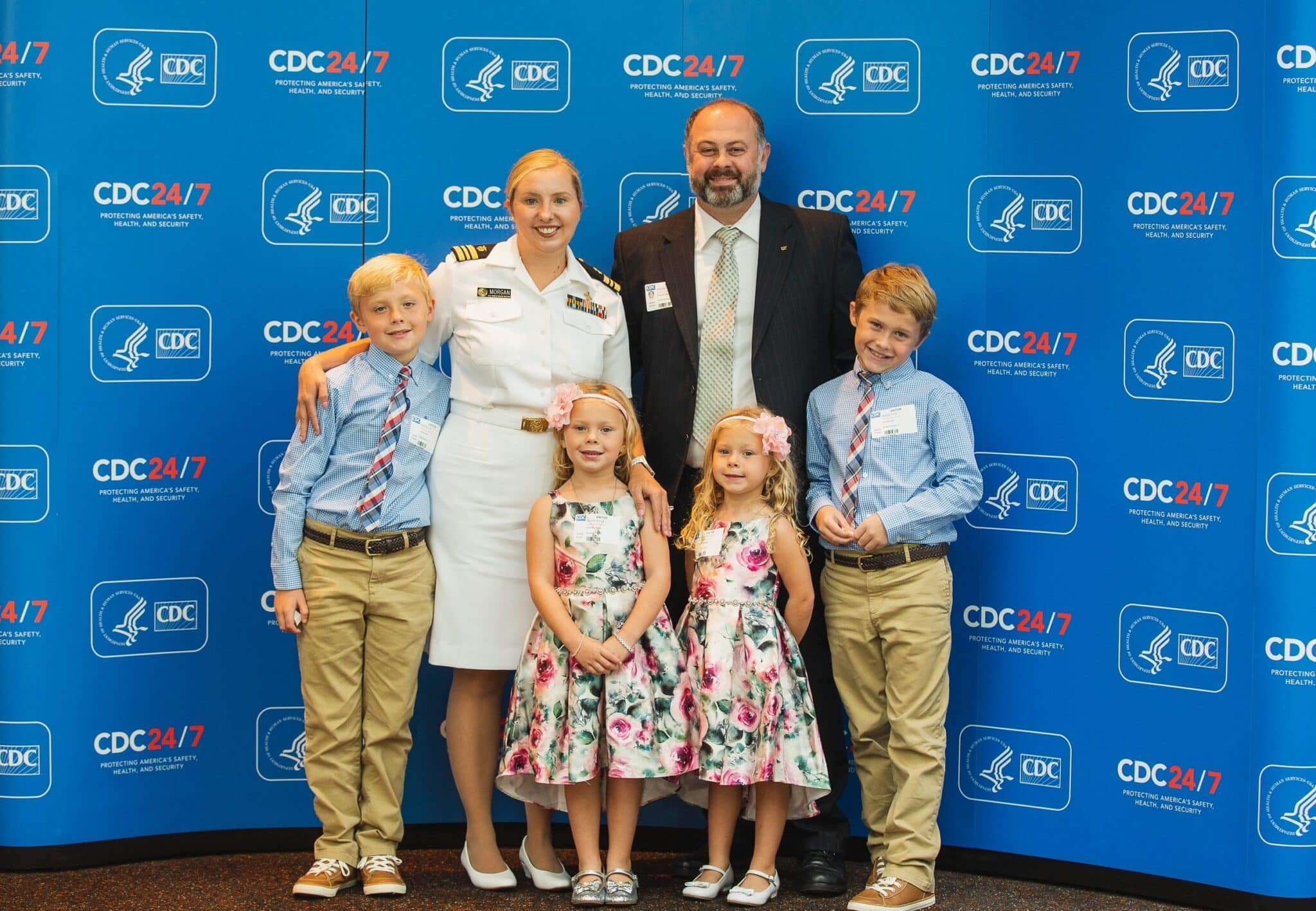
Motherhood comes with a lot of moving parts. For these Peachtree Corners moms, it also means leading teams, building careers and keeping the family schedule running. Most days, all at once.
This Mother’s Day, we’re spotlighting seven women in our community who are doing just that. They’re professionals in full-time leadership roles, showing up to strategy meetings by day and soccer games by night. They’re problem-solvers, planners, caregivers and coaches.
What connects them most isn’t just what they do, it’s how they do it. With intention. With humor. With support from partners, parents, friends and neighbors. And with a deep appreciation for the community they’ve built in Peachtree Corners.
Through their stories, we celebrate more than titles and to-do lists. We honor the quiet, constant work of showing up.
Tracy Lee
Tracy Lee leads with heart and vision as CEO of This Dot Labs, a software consultancy focused on helping businesses solve complex challenges through technology. Her engineering leaders collaborate with major clients like Stripe, DocuSign, Google, Wikipedia and Roblox. She’s passionate about her work.
“I love the mix of problem-solving and people leadership and knowing the work we do can make a real-world impact,” she said.

Tracy brings that same intentionality to her life at home, where she and her husband, Elliott Fouts, are raising three young children: William, 3, and twins Angelina and Marcus, who are 1.5. Despite the busy pace, Tracy is committed to being present in every role she plays.
“I have three full-time nannies and two part-time nannies, as well as girls around the neighborhood who are mama’s helpers to manage the chaos! With the help, we are able to do more and enjoy more time with our kids,” she said. “I try to be fully present, whether I’m in a meeting or building block towers in the living room. It’s never perfect, but we focus on what matters most in the moment.”
Tracy credits her support system for making it all possible. “I have an incredible partner and a strong support system between our nannies, friends and local community,” she said. “We have a local moms group for Asian moms called Georgia Asian Moms, and there are so many moms just in our neighborhood. It’s really great.”
Peachtree Corners has become a meaningful home base for the family. “We absolutely love it here,” she said. “There’s amazing programming for kids at The Forum every Tuesday in the spring and summer. It’s such a gem for young families.”
Weekends often include time outside and community adventures. “Sometimes the best hack is just piling everyone in the wagon and heading out for fresh air!” she said.
Tracy leans on a strong partner, a tight-knit group of friends and a local moms network. “It really takes a village,” she shared. “And I feel lucky to have one.”
Melissa Nicholson
Melissa Nicholson knows what it means to lead with heart and precision. As division vice president of program management & international solutions at Aya Healthcare, she helps internationally educated healthcare professionals enter the U.S. workforce.
“What I enjoy most is the opportunity to support these professionals in achieving their American dream,” she said. “While also contributing to improved patient outcomes across the country.”
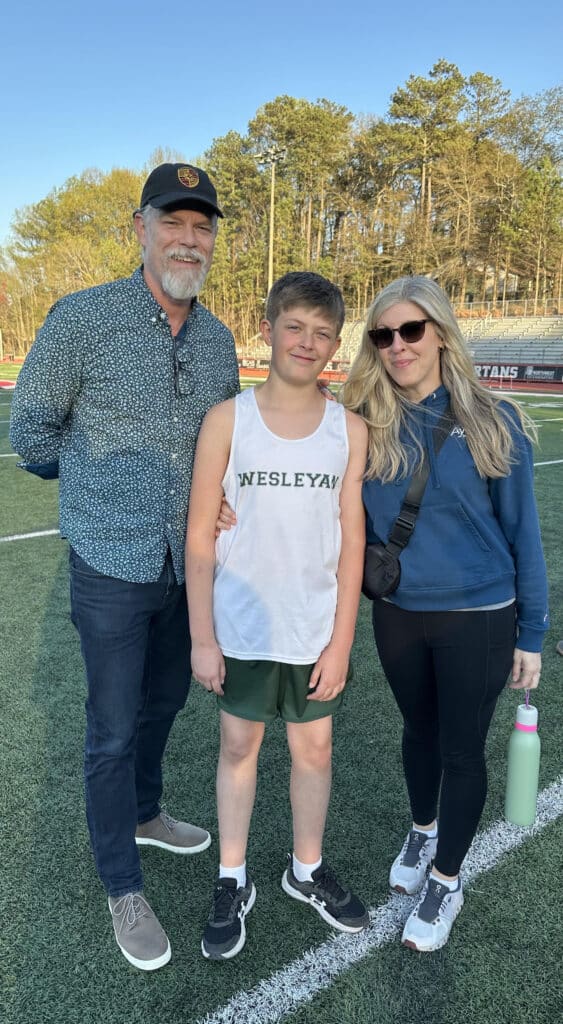
Melissa and her husband Greg recently celebrated 15 years of marriage. Their 12-year-old son, Luke, and a cat named Charlie bring a fun, loving dynamic of their own into the family. After relocating from East Atlanta a decade ago, they quickly embraced the Peachtree Corners community.
“It’s the people who make this community so special,” she said. “We’re truly grateful to count our neighbors as friends.”
Balancing an executive role with family life takes clarity and commitment. “I have to be very intentional with my time,” Melissa shared. She sets boundaries at work and makes sure her team knows when she’s off the clock for important family moments.
Wellness is a key part of her rhythm. “I recently started working out at Orangetheory Fitness,” she said. “I’ve noticed a significant boost in both energy and focus.” Sundays are for church and reflection.
When she travels for work, Greg holds it down at home. “We rely on each other to keep life running smoothly,” she said. “I’m grateful every day for that kind of partnership.”
On weekends, Melissa prioritizes quality time. Whether that’s a hike, pool day or baking something from scratch. “We’ve learned that if we don’t prioritize those moments, the weekends can quickly get taken over.”
Diva Hicks
For Diva Hicks, work isn’t just a job, it’s personal. As creative senior manager at CURE Childhood Cancer, her mission runs deep.
“At 12 years old, my sister was diagnosed with cancer,” she said. “CURE, in its early days, was a resource for my family.”

Her sister survived and now thrives. That experience shaped Diva’s career and continues to inspire her today. “This is my opportunity to give back to CURE for what it did for my family,” she said. “It’s rare to find a place where your purpose and passions collide.”
CURE also welcomes her whole family into the fold. “I get to bring my kids to events all the time,” she said. “They love feeling like they are a part of my work.”
Diva lives in Peachtree Corners with her husband John, their children Adair, 8, and Tripp, 6, and two golden doodles. “There is a sense of community here that I think is special,” she said.
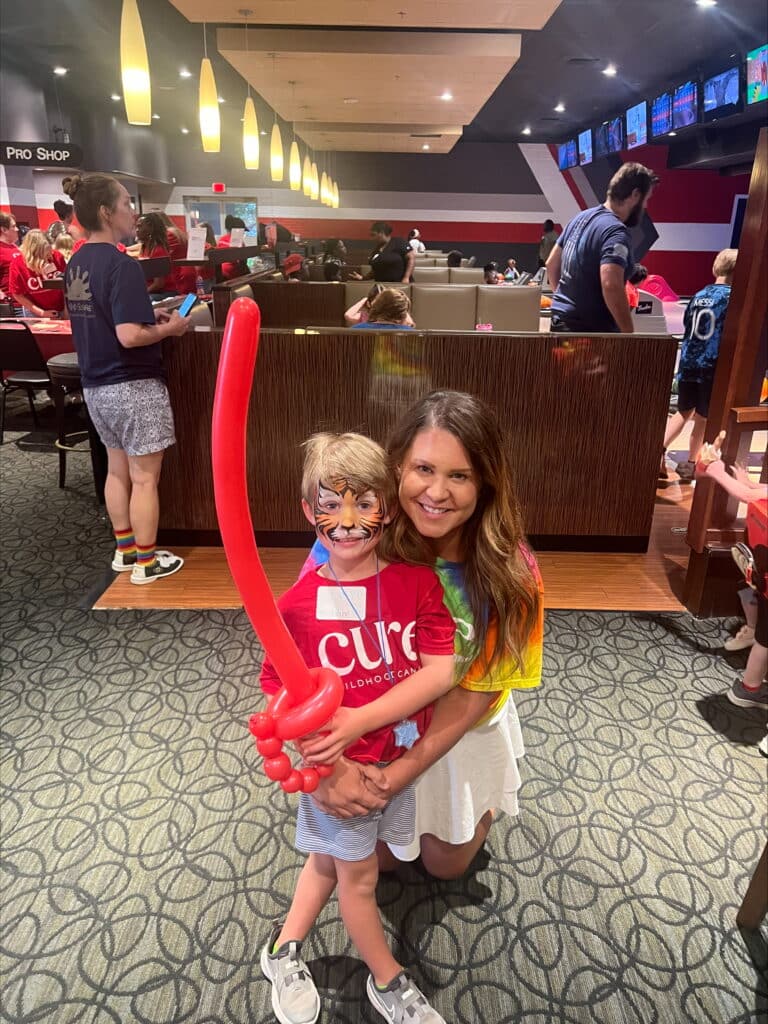
Balance is a daily effort. “John and I have tackled who helps with homework and on what days,” she said. “I would not be able to be the mom that I am without my village.”
She leads school committees and never misses events. “Is it easy? No,” she said. “But I honestly say, it’s not easy for any parent.”
Diva’s motivation is clear. “I want Adair to look at me and see that she can be a mom and have a career too.”
The family stays grounded with tennis weekends and careful planning. “We live by our calendar,” she said. “The more prepared I am, the easier life is.”
Kate Martin
Kate Martin knows how to bring structure to busy systems. As senior director of financial planning and analysis at Alloy Roofing, she finds energy in collaboration and clear strategy.
“In this role, I work closely with various teams across the business,” she said. “It supports the company’s strategy and performance.”
Kate and her husband, Nathan, are raising two children, 14-year-old Elliot and 10-year-old Evan, in Peachtree Corners. After ten years in the area, she credits the people for making it feel like home. “Life wouldn’t be the same without the relationships we’ve built here,” she said.

Balance starts with planning. “We keep a central Google calendar synced with all the family commitments that we review daily,” she said. “On Sundays we write on the kitchen boards.” Their chalkboard becomes the weekly roadmap, from meals to responsibilities.
“Seeing things laid out visually keeps me from overcommitting,” she added.
The family stays grounded by recognizing progress. “What keeps me motivated is celebrating both the big and small wins together,” she shared. “Sometimes, making it through the week is a victory in itself.”
Kate relies on a strong network. “We are very fortunate to have my parents nearby,” she said. “I also have an amazing network of women here in Peachtree Corners that I rely on.”
Her favorite hack? “An app Nathan created to help manage our calendars,” she said. “He created a solution to integrate these webcal subscriptions into a central subscription hub.” It’s called Skedj, and they’re piloting it now. “If you know this struggle and want to help us pilot the app, check out skedj.co!”
Linda Luna
As vice president at RSUI, Linda Luna manages risk while empowering people. She leads a team of underwriters who handle professional liability and cyber insurance. “I really enjoy my job because of its dynamic nature and the opportunity to help people in meaningful ways,” she said.
Whether she’s mentoring her team or protecting clients’ businesses, Linda finds value in impact. “It’s rewarding to know that my work has a positive impact on both my colleagues and our clients.”

She and her husband, Ruben, are raising their two children, Dawson, 10, and Ava, 6, in Peachtree Corners. Her parents, though not under the same roof, are a constant part of daily life. “They help keep things running smoothly on the home front,” she said.
After nine years in the community, Linda has grown to love its blend of charm and convenience. “There is always something to do,” she said. “Whether it’s grabbing a bite at Ted’s or spending time with friends at Town Center.”
Balance comes from structure. “By establishing a solid schedule and sticking to it, I can ensure that my work commitments are met,” she said. “Being fully present allows me to strengthen my connection with my loved ones.”
When things get busy, she takes a practical approach. “Breaking it down into smaller, manageable tasks makes it much more approachable,” she said. “I remind myself to keep the bigger picture in mind and not sweat the small stuff.”
Linda’s support system is strong. “It truly takes a village, and I’m so grateful for mine,” she said. The family’s favorite tradition? A beach trip to 30A every May. “It’s our way of unwinding, reconnecting and making lasting memories together.”
Allison Blasetti
Allison Blasetti holds a national leadership role at Transamerica in the employee benefits division — a position that constantly challenges and motivates her. “What I enjoy most is the opportunity to use my talents to help my team,” she said. “I’m always growing and learning.”
She and her husband, John, are raising daughters Annie Mae, 8, and Olive, 6, in Peachtree Corners, where they’ve built strong ties in the community. “The amenities in our city provide many opportunities to run into friends around town or plan meet-ups,” she said.

Allison works from home and prioritizes clear boundaries. “I turn off my app notifications because it quickly pulls me back in to work,” she said. “I also have a dedicated workspace in my house where I can leave at the end of the workday.”
She’s developed the habit of resetting her mindset, as well. “I quickly recognize [when] I’m mentally ‘at work’ and actively redirect my thoughts back to being in the present moment.”
Allison’s mornings begin at Burn Bootcamp, where she finds motivation and connection. “Spending an hour with my Burn community helps me get grounded for the day,” she said.
To stay organized, she and her husband use a shared family calendar. Her mom steps in often, especially when work travel ramps up. “I really don’t know what we would do without her.”
On weekends, Allison coaches Olive’s soccer team with the Peachtree Corners Football Club. “It brings me so much joy to be outside, see my soccer friends and watch my girls have fun,” she said. “Coaching makes it even better because I get to support the community that means a lot to me.”
Samantha Morgan
Samantha Morgan is a commander in the U.S. Public Health Service, currently assigned to the Centers for Disease Control and Prevention. Over her career, she’s responded to major public health threats, including Ebola, Zika and COVID-19. Today, her work centers on injury prevention, with a focus on issues like suicide, drowning and traumatic brain injury.
“What I enjoy most is being part of CDC’s mission to save lives and protect people,” she said. “I’m proud to contribute to work that makes a tangible difference in communities across the country.”
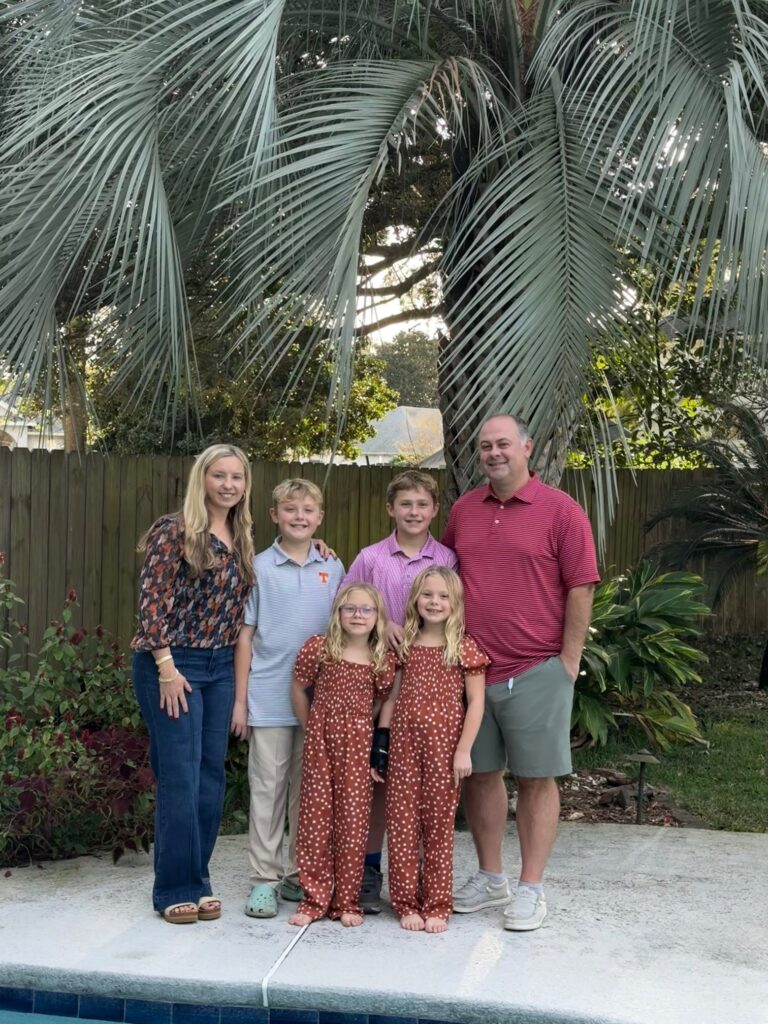
At home in Peachtree Corners, Samantha and her husband, Brian, are raising two sets of twins. Luke and Elliot are 12-years-old and love baseball, golf, basketball and band. Charlotte and Noelle are 8-years-old and enjoy piano, tumbling and tennis. “Life with four kids is wonderfully busy,” she said. “I often joke that I’m an unpaid Uber driver!”
After more than a decade in the neighborhood, Samantha credits their support system for helping them manage the day-to-day. “Our neighbors and friends — our village — have supported us through the hardest moments and celebrated life’s greatest joys with us,” she said.
Structure is key to keeping things on track. “We live and breathe by our family calendar,” she said. “Shared schedules, group texts and carpooling help us keep things running.”
Her children remain Samantha’s biggest motivators. “They know, ‘mom’s going to work to help make the world a safer place,’” she said.
The family also leans on routines and simple joys. “Checklists are my go-to mom hack,” she shared. One of their favorite traditions is make-your-own-pizza night. “It’s messy, silly and something we all genuinely look forward to.”
The seven women featured here offer a glimpse into the lives of working moms in Peachtree Corners. Each one balances career, family and community with care and intention. They are just a few of the many women — both working and stay-at-home — who nurture, organize and uplift the people around them every day.
Whether leading teams or guiding their children, mothers across this community show up with strength, love and quiet determination.
You’ll find this story in the May/June issue of Peachtree Corners Magazine, available in print and digital edition.
Related
City of Peachtree Corners
Official City Merchandise Line Debuts This Saturday at Town Green
Published
2 days agoon
May 6, 2025
This Saturday, May 10, residents and visitors are invited to experience the debut of Peachtree Corners’ official merchandise collection at the Town Green. The pop-up shop will be open all day, beginning at 8 a.m., located directly behind the former Jinbei restaurant.
This pop-up shop is provided through a pilot program with Vox-pop-uli and the City of Peachtree Corners.

“We’re thrilled to showcase our city’s spirit through this exciting new merchandise line,” said Louis Svehla, City of Peachtree Corners director of communications. “There’s something for everyone, whether you’re a proud local or just visiting. We are excited about testing this pilot program to raise funds for continued improvements at Town Green and events.”
Featured items include:
- brand new concert-themed apparel
- city-branded merchandise
- limited edition collectibles
- perfect Mother’s Day gift selections
With Mother’s Day approaching, shoppers will find unique, locally inspired gifts guaranteed to delight mom with something she doesn’t already own.

Visitors can browse and purchase items throughout the day, with friendly staff available to assist with selections.
Event details
Date: Saturday, May 10
Time: Starting at 8 a.m.
Location: Town Green (behind former Jinbei location)
Payment methods accepted: Cash and credit card accepted
Related
Read the Digital Edition
Subscribe
Keep Up With Peachtree Corners News
Join our mailing list to receive the latest news and updates from our team.
You have Successfully Subscribed!

GA Tech Launches First-of-its-Kind GT Atrium in Peachtree Corners

Katherine Lafourcade — A Journey of Passion, Resilience and Giving Back

Digital Edition

PCBA Announces 2025 Scholarship Winner

Paul Duke STEM High School Student Earns CGO Scholarship

World Blood Donor Day Starts Here: Theo’s Miracle, Katherine’s Mission [Podcast]

Executive Function: A Tribute to Working Moms

Peachtree Corners Grows Business Opportunities Through Economic Development

Simpson Elementary Marks Exceptional Children’s Week

Executive Function: A Tribute to Working Moms

Official City Merchandise Line Debuts This Saturday at Town Green

Peachtree Corners Grows Business Opportunities Through Economic Development

Digital Edition

World Blood Donor Day Starts Here: Theo’s Miracle, Katherine’s Mission [Podcast]

Paul Duke STEM High School Student Earns CGO Scholarship

PCBA Announces 2025 Scholarship Winner

Light up the Corners [Video]

Capitalist Sage: Business Leadership in Your Community [Podcast]

Cliff Bramble: A Culinary Adventure through Italy

Top 10 Brunch Places in Gwinnett County

A Hunger for Hospitality

THE CORNERS EPISODE 3 – BLAXICAN PART 1

Top 10 Indoor Things To Do This Winter

The ED Hour: What it takes to Remove Barriers from Education

Peachtree Corners Life
Topics and Categories
Trending
-
Digital Edition4 days ago
Digital Edition
-
Podcast4 days ago
World Blood Donor Day Starts Here: Theo’s Miracle, Katherine’s Mission [Podcast]
-
Community2 days ago
Executive Function: A Tribute to Working Moms
-
Business3 days ago
Peachtree Corners Grows Business Opportunities Through Economic Development






